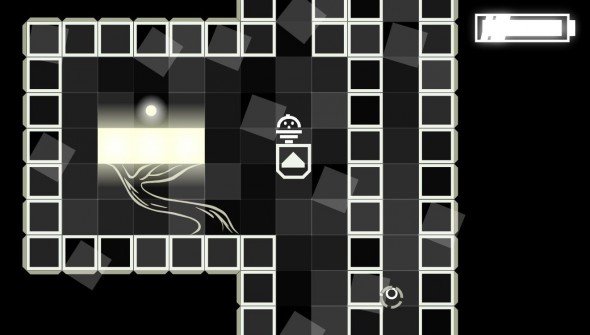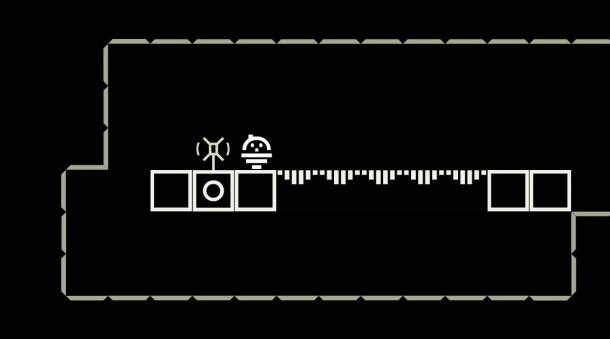Our Verdict
An often frustrating game built around a clever idea. It could have become something so much greater.
PC Gamer's got your back
If you're a member of the camp of gamers who believe that the answers to puzzles should never be signposted, and that modern games are way too easy, then you're going to like 1000 Amps.
You play as a cute lil' icon called Plug (no relation to the Bash Street Kid) who is attempting to repair a set of electrical stations called the Amp- Tree-System. In each room, you can light up a number of squares by touching them, and when you've lit them all, that part of the system is repaired. As you light these squares, you're given more power – enabling you to jump and teleport. Most of the puzzles rely on using that gradual increase in power to enable you to access more and more lightsquares in each room.

The art style is minimalist. So minimalist, in fact, that you can't see any of the room you're in until you touch the squares in question. As such, exploration becomes an exercise in feeling around in the dark, unsure if you're about to plunge down a hole into another room entirely, losing all your progress in the current room. That's around the point when 1000 Amps starts getting a little frustrating.
It continues to frustrate when you come up against seeminglyimpossible rooms that have conveyor belts that cart you around against your will, rogue baddies who switch off lights that you've switched on, and jumping puzzles that demand pixel-perfect precision.
It's a defiantly retro path to take, and one that isn't going to please everyone – especially when failure often means trekking back through several past rooms just to have another go. The map gives you some idea of where you're supposed to be going, but it's utterly uninteractive and therefore mostly useless.

The worst moments are when you know exactly what you need to do to solve a room, but can't quite get the timing of the jumps or teleports right, and you find yourself repeating the same move over and over again, hoping that you fluke your way into doing it right. When you do finally manage that, you won't think “Amazing! I am so talented!” – you'll think “Thank God that's over.” Then you realise that you have to start essentially from scratch in the next room.
The core idea of powering up your character progressively is a solid one, and there are moments of real beauty in the stark-but-cute art style, but ultimately 1000 Amps fails by simply not giving the player enough information, forcing a trial-and-error, guesswork-oriented approach to problem solving. That's fine when a game gives you another go instantly, but that's often not an option here.
There is an audience who'll love 1000 Amps, and the £4 price is excellent value for a puzzle game of this length. But if you prefer your games to be a little more friendly and approachable, then you're going to want to look elsewhere.
An often frustrating game built around a clever idea. It could have become something so much greater.


